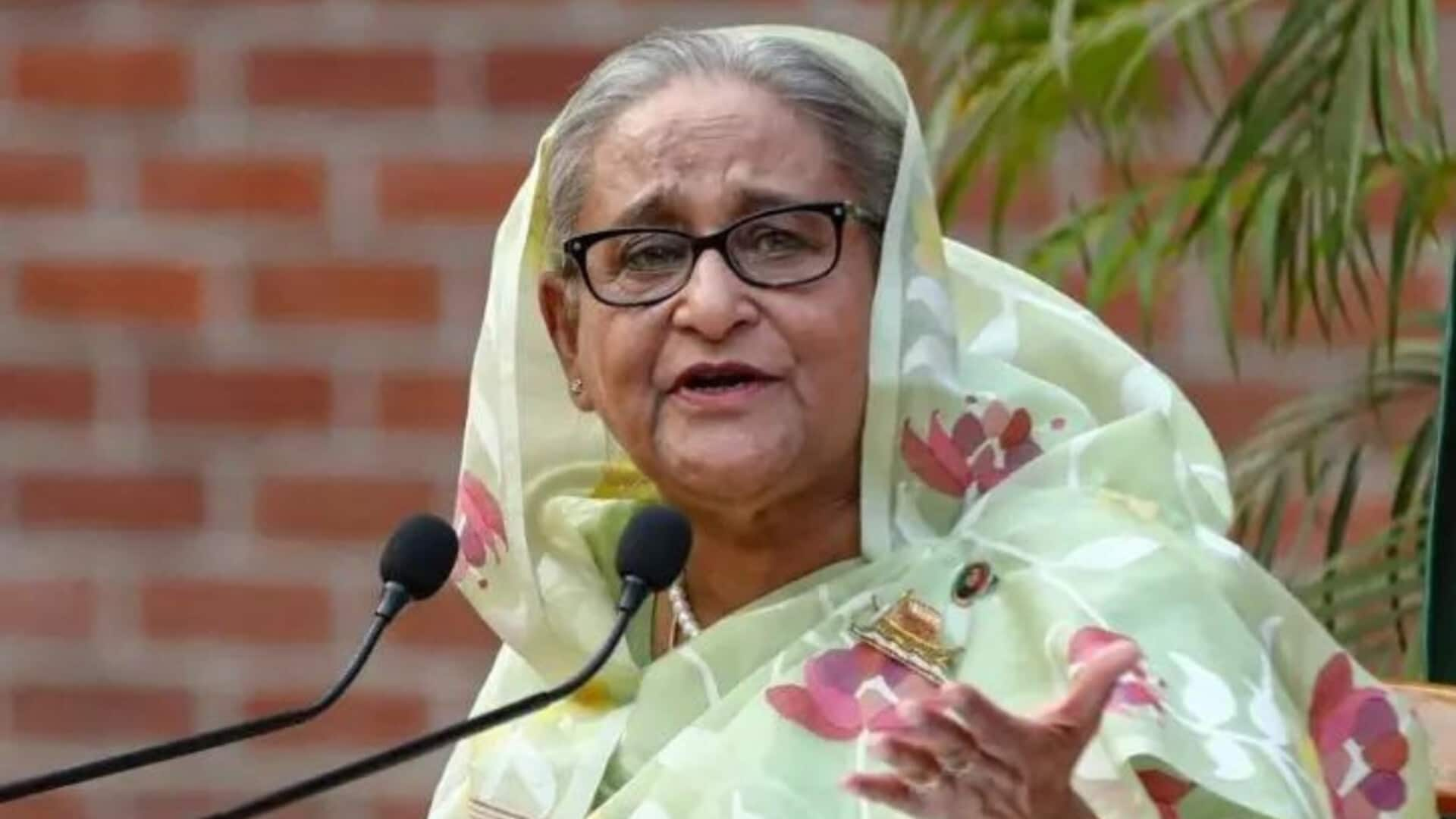
Bangladesh court issues arrest warrant for ex-PM Sheikh Hasina
What's the story
A Bangladesh court has issued an arrest warrant against former Prime Minister Sheikh Hasina, who has been living in exile in India since August. The court has ordered that Hasina be produced before it on November 18. According to the Dhaka Tribune, the International Crimes Tribunal (ICT) issued the warrant over mass killings during the Anti-Discrimination Student Movement in July and August.
Warrants
Over 60 complaints of enforced disappearance, murder, and mass executions
On the first day of the proceedings, the prosecution team requested arrest warrants for 50 people, including Hasina. More than 60 complaints of enforced disappearance, murder, and mass executions have been filed with the International Crimes Tribunal against Hasina, other leaders of her Awami League party and the 14-party alliance, journalists, and former law enforcement officers.
Diplomatic tensions
Hasina's exile in India strains bilateral relations
Since leaving Bangladesh, Hasina has kept a low profile with her last known location being a military airbase near New Delhi, India. Her presence in India has strained ties between the two nations, prompting Dhaka to cancel her diplomatic passport. While both countries have an extradition agreement in place, its execution remains uncertain due to a clause allowing refusal if charges are considered "political in nature."
Controversial tenure
Hasina's 15-year rule marked by human rights abuses
Hasina, now 77, ruled Bangladesh for a decade and a half. Her rule was marred by serious allegations of human rights violations, including political imprisonments and extrajudicial executions. Mohammad Tajul Islam, chief prosecutor of the ICT, said, "Sheikh Hasina was at the helm of those who committed massacres, killings, and crimes against humanity between July and August."
Tribunal scrutiny
Controversial tribunal investigates Hasina's alleged crimes
The ICT, set up by Hasina's government in 2010 to investigate war crimes from Bangladesh's 1971 war of independence from Pakistan, is investigating several cases accusing her of masterminding mass killings of protesters during her rule. However, the tribunal has been criticized by the United Nations and human rights groups for failing to ensure procedural fairness. It is largely seen as a weapon used by Hasina to wipe out political opponents.